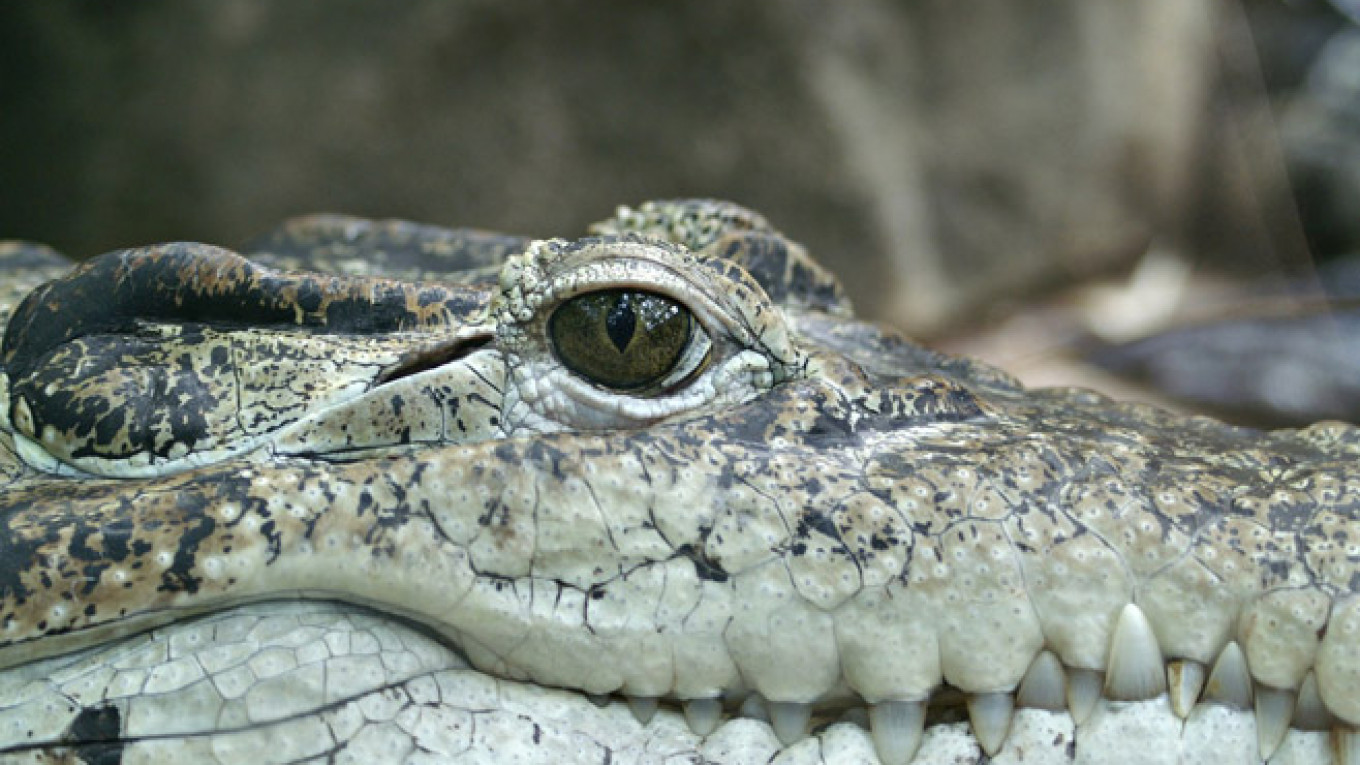How does a circus cut costs in an economic crisis? Answer: Find out which crocodiles are slacking, and fire them.
Of the nearly 2,000 animals employed by the massive Russian State Circus Company, many — especially the reptiles — never perform, CEO Vadim Gagloyev said Tuesday during a presentation of the state company's plans for dealing with the economic crisis.
"There are 49 crocodiles in our company, but I know only one act that these crocodiles perform in," Gagloyev said. "No one has ever set out a policy on how many and what kind of animals we need."
Numerous animals could potentially lose their jobs, and the news is little better for human staff. The company is planning to cut its 7,000-person staff by up to 30 percent, including 50 percent of its "bloated" administrative stuff and 10 to 20 percent of performers, Gagloyev said. They won't be alone — unemployment in Russia is forecast to rise this year as the economy shrinks.
The circus has long held a special place in the Russian heart, and if you're walking into an arena in Russia, there's a good chance it is owned by the Russian State Circus Company.
With 33 circuses and 42 performance halls across the country to its name, the company's roots date back to the early years of the last century. Russia's circuses were nationalized in 1919 on an order signed by Communist Party leader Vladimir Lenin and later united in a single organization, which earned fame with spectacular tours abroad during the Soviet Union.
The company's circuses now tour extensively both within Russia and abroad, with ticket revenues reaching 1.5 billion rubles (about $22 million) in the first half of the 2014-15 season,
But as a state institution, the circus company has long suffered from the same blights as other government agencies: inefficiency, redundancy and poor use of federal money.
"I have very big questions and complaints for the heads of our affiliates. These aren't empty words — we're talking about the irrational use of government funds," Gagloyev said.
Now, with new management — Gagloyev was appointed last year — and the government urging agencies across the board to slash spending as Russia staggers into recession, the circuses are in for an overhaul.
This will extend even to the food that the animals eat. Russian circus animals currently consume a "traditional" diet of meat, fish and vegetables, Andrei Subbotin, head of the company's biotechnology and veterinary care department, told The Moscow Times.
This approach contrasts sharply with practices abroad, where circus animals are typically fed specially formulated foods that meet their caloric and nutritional needs — the equivalent of cat or dog food for wild animals.
Cutting down on traditional foods and moving to a more standard system will cut down costs "substantially," Subbotin said.
These changes do, of course, raise some questions — not the least being what will happen to the former circus animals who, unlike human performers, may have difficulty entering new professions.
"It's a very serious question," Gagloyev acknowledged. They could be taken in by zoos, or by one of the traveling menageries or shelters owned by the circus company, he said.
But at least one thing is certain: "No one is going to make crocodile handbags," Gagloyev said. "We live in a civilized world, and so do the crocodiles."
Contact the author at d.damora@imedia.ru




